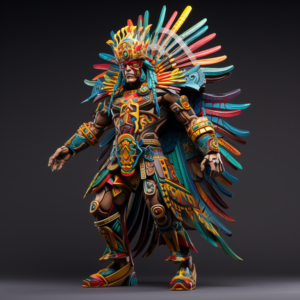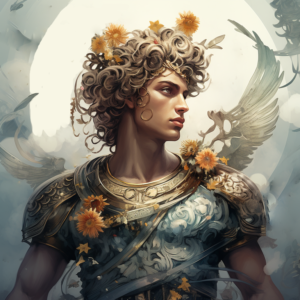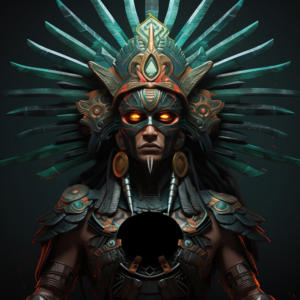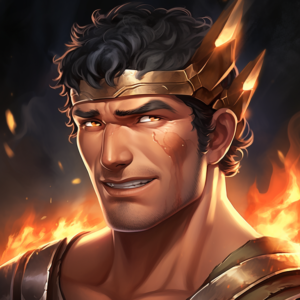Vulcan is the Roman god of fire. His power was assumed to be the force behind destructive conflagrations and volcanic eruptions. In fact, it is from the same Latin root that the modern word “volcano” is derived. He was also the god of metalworking, forges, and craftsmanship.
Myths and Stories
The surviving myths of Vulcan were largely related by the Roman poet Virgil, as well as Servius, who wrote about Virgil’s work during the fourth century A.D. It was said that Vulcan maintained a forge for crafting metal beneath Mount Etna on the eastern coast of the island of Sicily, where he made weapons suitable for use by the gods and goddesses. This mountain was then and remains one of the most active volcanoes in the world. Its fiery activity has been documented for the last 2,700 years. Fires, smoke, and lava escaping the volcano were believed to be blasts from Vulcans’ forge.
Vulcan was the father of Caeculus, who went on to found the city now known as Palestrina, Italy. He also fathered Cacus, who was capable of breathing fire, as described in Book VIII of Virgil’s Aeneid. Cacus stole a number of cattle from Hercules and hid them on the Aventine Hill. When one of the pilfered cows bellowed, Hercules found Cacus and killed him.
Other myths are derived from his connection to the Greek Hephaestus. For example, a number of legends, including Homer’s Illiad record that Vulcan was cast from the heavens, either by his father or his mother. In some of these legends, the reason for his removal is a physician deformity he had born since birth, of which his mother was ashamed.
In another myth, Vulcan had wed the beautiful Venus. One day, the sun god entered the dark underground forge bearing bad news: he had witnessed the fire god’s wife with her lover, Mars, god of war. She preferred the beautiful and complete Mars to her divine yet crippled husband. Vulcan, therefore, made a metal net in which to capture the guilty lovers. He set a trap with the net in his own interior room, then left the house, pretending to go on a distant journey. Mars and Venus were caught in their act of adultery when the metal chains fell upon them, trapping them in their bed. Vulcan demanded that he be repaid the marriage gifts he had given for Venus’ hand, but when the lovers are released, they flee in opposite directions. The ancients reveled in the fact that Vulcan, although lame, outsmarted the strong and mighty Mars.
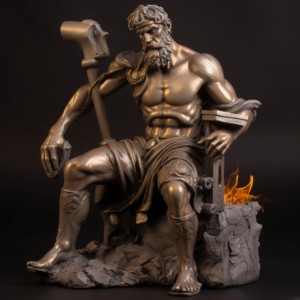
Worship
As god of fire, Vulcan was worshiped in hopes of averting fires. In this role, he was called Mulciber, meaning “allayer of fire,” or Quietus. In the region of Ostia in particular, he was invoked to protect the stores of grain from fires, which might occur as spontaneous combustion due to the decomposition of the grain.
In Rome, special priests, or flamen, were devoted to Vulcan, and his temple was inaugurated in the Circus Flaminius in 215 B.C. His temples were located outside of their respective cities to avoid any collateral damage from Vulcans’ fires. His primary festival, called Volcanalia, was observed each year on August 23, as part of a celebration involving many deities. He shared this festival with Fauna, also called Bona Dea, “the Good Goddess.” Fauna was a fertility goddess. The festival, which occurred during the summer drought when wildfires were most likely to occur, invoked the gods’ protection. During the festival, a rite was performed in which the heads of families in Rome pitched small fish into bonfires lit on the banks of the Tiber River. It is thought that these fish were given as living sacrifices. The meaning of this ritual has been lost in antiquity.
Facts about Vulcan
Role in Mythology: God of fire, god of the forge and metalwork
Etruscan Equivalent: Sethlans
*As an Amazon Associate I earn from qualifying purchases.

